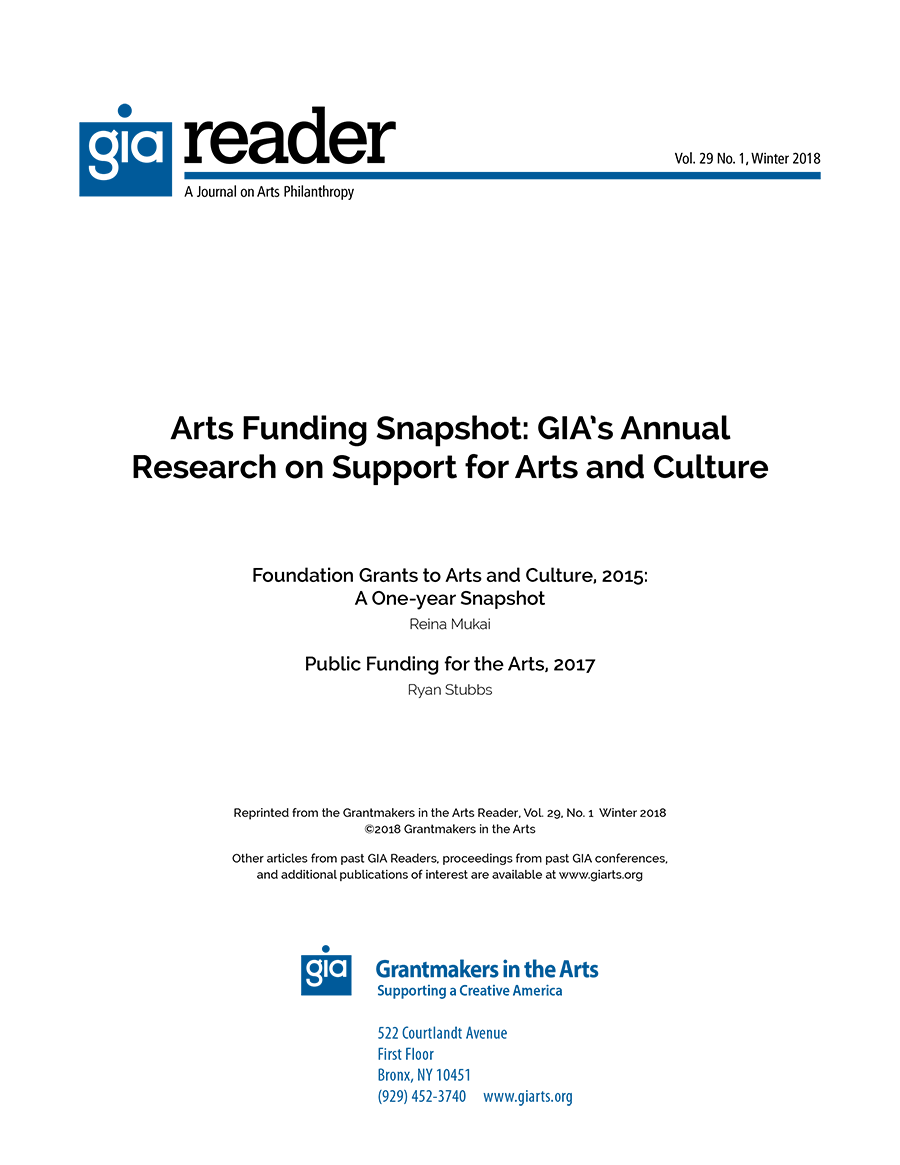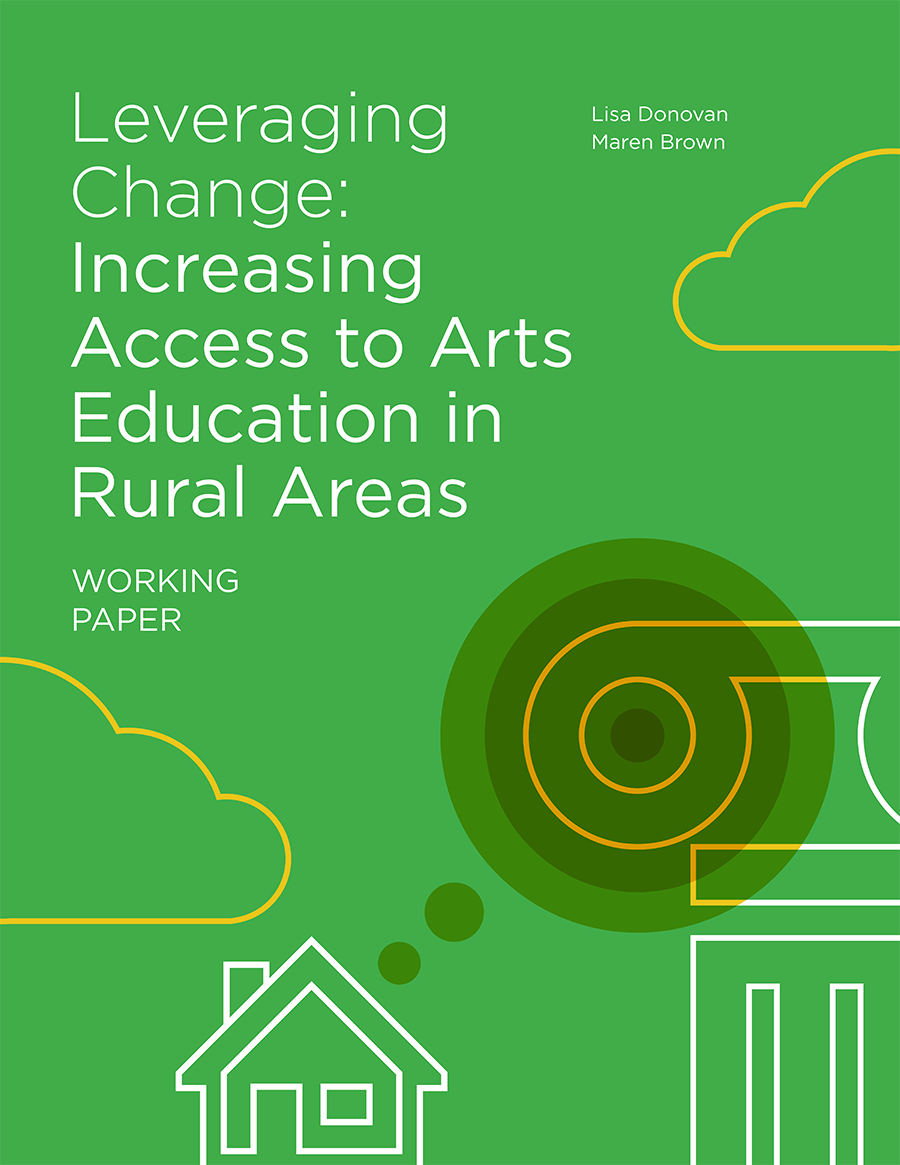Cultural Policy
Download:
![]() Arts Funding Snapshot: GIA’s Annual Research on Support for Arts and Culture (332Kb)
Arts Funding Snapshot: GIA’s Annual Research on Support for Arts and Culture (332Kb)
During the past two decades, cultural planning practice in the United States has fallen behind that in parts of the world where cultural plans are required in city general plans, broader definitions of culture have been adopted, more domains of city planning have been integrated, and theoretical debate has progressed further. In the United States there is neither a field of cultural planning nor of cultural planners.
Read More...“Is the stadium we passed going up or coming down?” asked Kristen Calhoun, ArtChangeUS founding program director. Suddenly the previously strained community meeting we were attending came alive. Kristen and I were in Detroit in July 2016 to plan ArtChangeUS REMAP: Detroit, and we had repeatedly driven by the mass of steel girders, not knowing if it represented Detroit’s past or future. Artist and activist Invincible ill Weaver had organized a series of gatherings for us to meet with grassroots cultural change makers.
Read More...If there is in society a collective consciousness, then art is its imagination. Imagination is different from fantasy, which conjures up desires divorced from reality; imagination is creative problem solving that assesses what is available and re-creates it into something new, better, or self-satisfying. Detroit has been short on many things over the past fifty years — economic prosperity, functioning city services, racial justice, validation — but it is astonishingly long on imagination and creative problem solving.
Read More...A society’s values are the basis upon which all else is built. These values and the ways they are expressed are a society’s culture. The way a society governs itself cannot be fully democratic without there being clear avenues for the expression of community values, and unless these expressions directly affect the directions society takes. These processes are culture at work.
— Jon Hawkes, The Fourth Pillar of Sustainability: Culture’s Essential Role in Public Planning
There are many arguments for continued federal funding to the National Endowments for the Arts and the Humanities (NEA and NEH), the Corporation for Public Broadcasting (CPB), and the Institute of Museum and Library Services (IMLS) — all agencies that would be eliminated by President Trump’s 2018 budget.
Read More...As our country prepares for a Trump presidency, the issue of economic revitalization in rural American has much more urgency than eight months ago when I started collecting data for this work. Here is a sampling of headlines from coverage by the New York Times of the economic decline in the rust belt, or more specifically, coal country and Appalachian towns: “Trump’s Promises Will Be Hard to Keep, but Coal Country Has Faith” (Nov. 28, 2016); “A Bleak Outlook for Trump’s Promises to Coal Miners” (Nov.
Read More...What can you do when times are uncertain, and yet a clear opportunity to advance a collective agenda presents itself? Take action.
Read More...Story matters, and we are at a pivotal moment in which there is a growing understanding that narratives that move hearts and minds are critical. Those of us who work at the intersection of the arts and social justice have known this for some time — in the words of Jeff Chang, “cultural change precedes political change” — but it has become apparent to many others that without compelling storytelling, policy platforms do not stick.
Read More...

